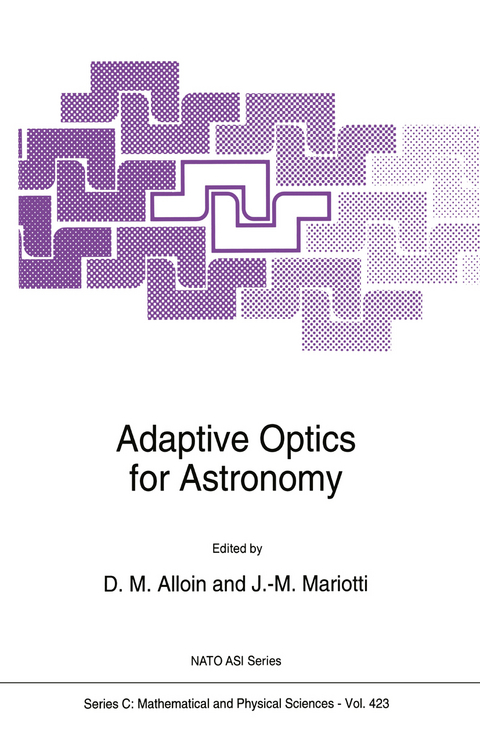
Adaptive Optics for Astronomy
Springer (Verlag)
978-0-7923-2748-6 (ISBN)
I: The problematics of adaptive optics.- to Wave Optics.- Atmospheric Turbulence Optical Effects: Understanding the Adaptive-Optics Implications.- Atmospheric Adaptive Optics Applications.- Modelling Atmospheric Turbulence Effects on Ground-Based Telescope Systems.- Servo-Loop Analysis for Adaptive Optics.- The Problematic of Adaptive Optics Design.- II: Critical components and systems.- Wavefront Sensing.- Optimization of Wavefront Sensors for the Highest Accuracy and Sensitivity.- Deformable Mirrors.- Astronomical Reference Sources.- Sodium-Layer Laser Guide Stars.- Synthetic Beacons for Atmospheric Compensation.- Sodium Beacon Used for Adaptive Optics on the Multiple Mirror Telescope.- Evaluating the Performance of Adaptive Optical Telescopes.- Integrated Adaptive Optics Systems.- Stray Radiation Issues in Astronomical Systems with Adaptive Optics.- Actve Compensation of Global Wavefront Tilts at Solar Telescopes: Present Status of an Electronic Development.- III: Astrophysics with adaptive optics.- The Impact of Adaptive Optics on Focal Plane Instrumentation.- Prospects for Alternative Approaches to Adaptive Optics.- Adaptive Optics for Long Baseline Optical Interferometry.- Astrophysics with Adaptive Optics: Results and Challenges.
| Erscheint lt. Verlag | 31.3.1994 |
|---|---|
| Reihe/Serie | NATO Science Series C ; 423 |
| Zusatzinfo | XVIII, 338 p. |
| Verlagsort | Dordrecht |
| Sprache | englisch |
| Maße | 210 x 297 mm |
| Themenwelt | Naturwissenschaften ► Geowissenschaften ► Meteorologie / Klimatologie |
| Naturwissenschaften ► Physik / Astronomie ► Astronomie / Astrophysik | |
| Naturwissenschaften ► Physik / Astronomie ► Optik | |
| Technik | |
| ISBN-10 | 0-7923-2748-9 / 0792327489 |
| ISBN-13 | 978-0-7923-2748-6 / 9780792327486 |
| Zustand | Neuware |
| Informationen gemäß Produktsicherheitsverordnung (GPSR) | |
| Haben Sie eine Frage zum Produkt? |
aus dem Bereich


